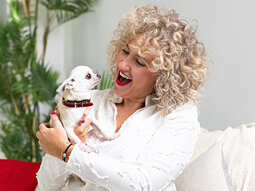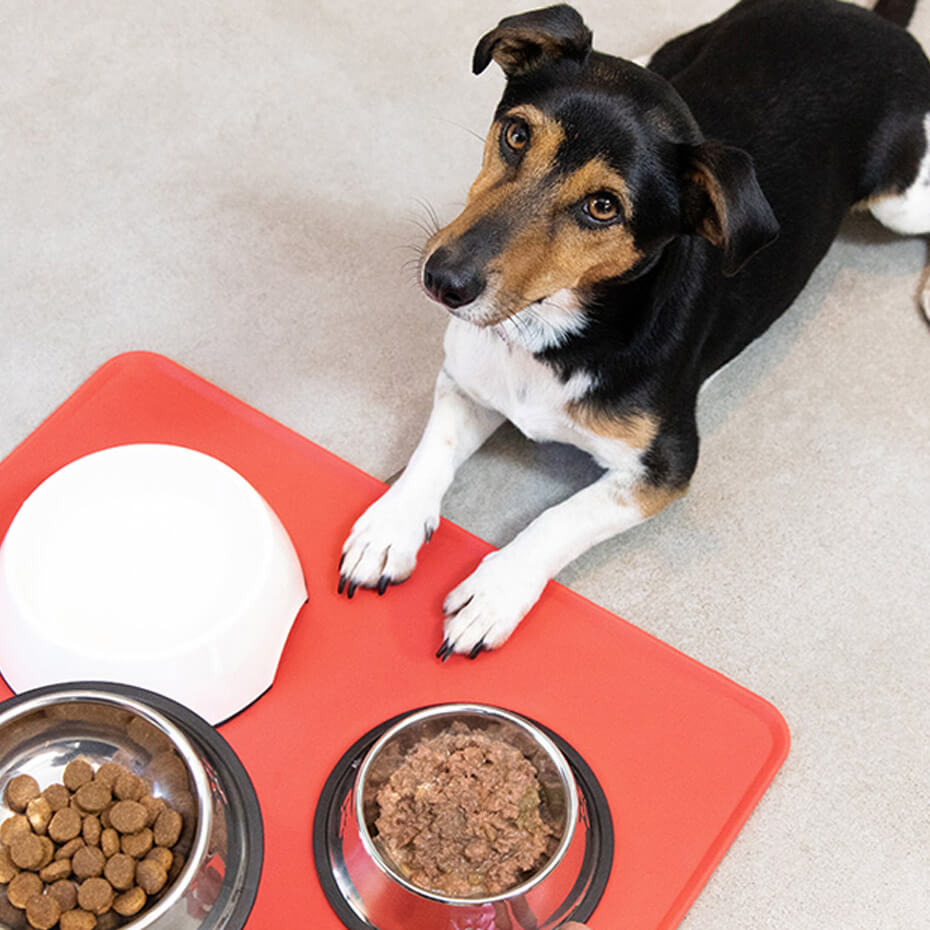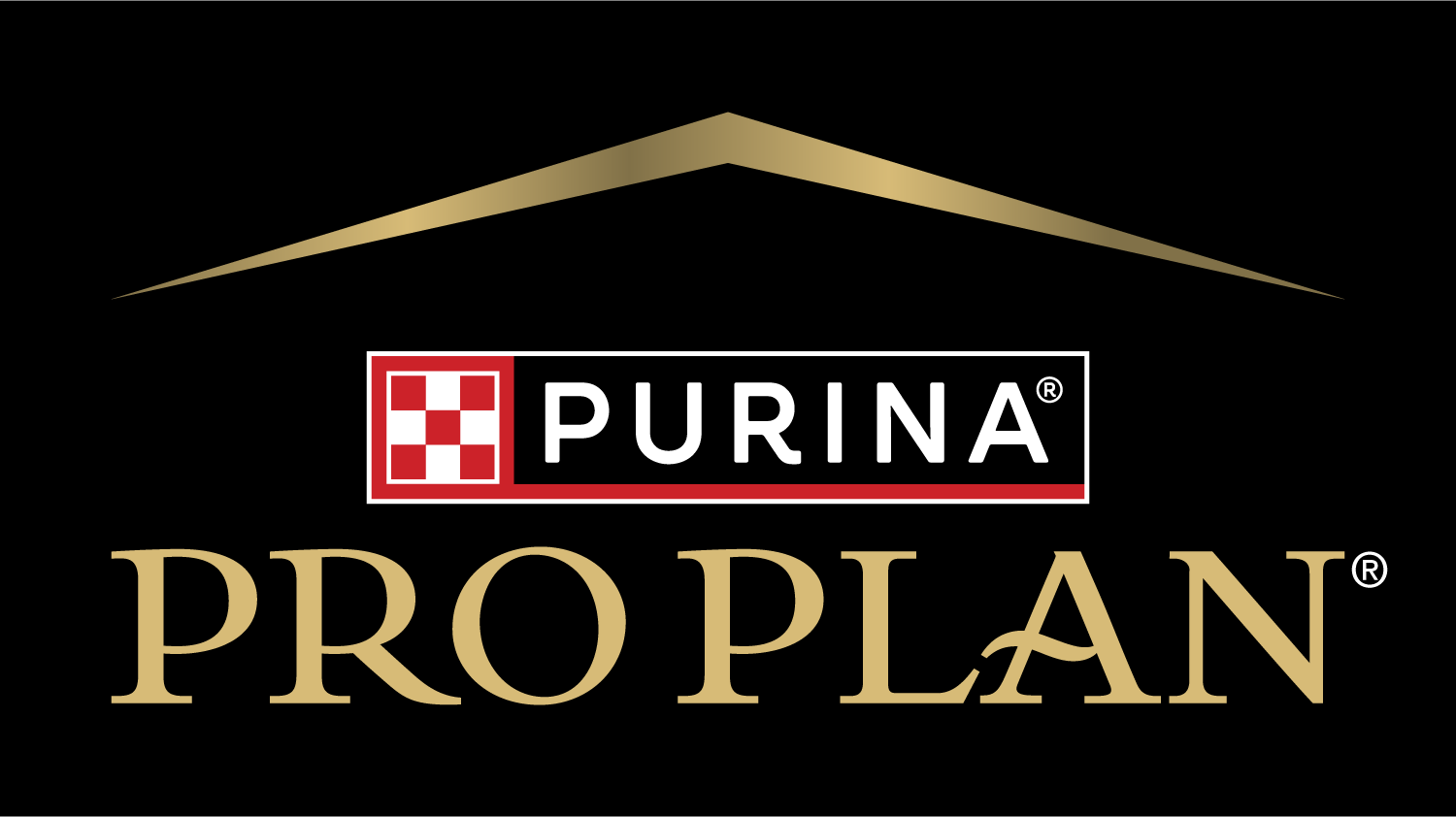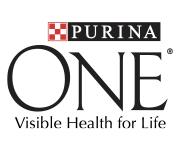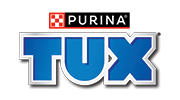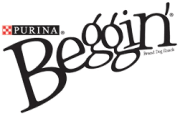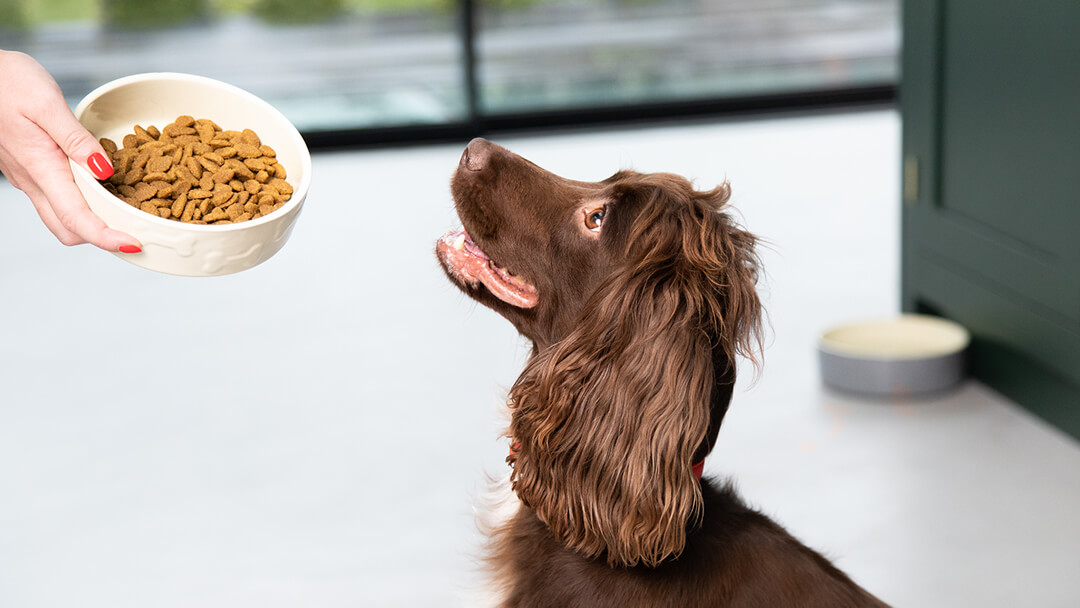
A balanced diet is essential for your dog’s long-term health. To ensure they get one, you need to be aware of the following.
SIX OF THE BEST
To help them lead an active, healthy life, your dog’s diet needs to have the right balance of the six major nutrient groups:
• Proteins
• Fats and oils
• Minerals
• Vitamins
• Carbohydrates
• Water
Unless your dog is pregnant or nursing, or suffering from a particular condition, there is no reason to change their food from the early days of adulthood until the end of the sixth year when your dog reaches ’senior’ status.
Dogs have different nutritional needs from humans. Whereas we are advised to eat fresh fruit and vegetables to provide vitamin C, the bacteria in a dog’s stomach produces enough vitamin C so they don’t need any more in their diet. Dogs are not true carnivores and can’t exist on meat alone.
A high-quality commercially prepared dog food like PRO PLAN® has been carefully formulated to provide the proper balance of all the nutrients a dog requires, as well as tasting good.
DOG NUTRITION IN A NUTSHELL
Ideally, dogs need a combination of meat, cereals and vegetables to get the right nutritional balance.
WHAT A DOG NEEDS
Protein
Proteins, made from amino acids, are the building blocks of the body. The proteins you feed your dog (like chicken, lamb or salmon) are responsible for releasing energy and forming muscle, skin, hair, antibodies, enzymes, haemoglobin and hormones.
Fats
Fats and oils provide the ‘fuel’ your dog needs to stay active – supplying more than twice as much energy as protein and carbohydrates. Fats and fatty acids are essential for good skin and coat condition and a healthy immune system. Fats are also important in improving the taste and digestibility of food.
Carbohydrates
Common carbohydrates like cereals and rice are an excellent energy source. Fibre also supports the digestive process.
Minerals
Minerals, such as calcium and phosphorous, are essential for strong bones and teeth, cell and tissue development, fluid balance and metabolic processes. Minerals must be carefully balanced; an excess of one can lead to a deficiency in another.
Vitamins
Vitamins are required in small amounts to help maintain growth, a healthy skin and coat, and to support the immune system. Too much of certain types can be harmful, while a deficiency in others can be equally damaging. Fat-soluble vitamins, (A, D, E and K) are stored in your dog’s fatty tissues, whereas water-soluble vitamins (B-complex and C) are excreted in the urine. Unlike humans, dogs do not require a dietary source of vitamin C.
Water
Water is essential for all living things and dogs are no exception. The amount of water dogs need depends on several factors, including air temperature, exercise levels and whether or not they are eating canned or dried food. Water regulates the body’s temperature, transporting nutrients around the body and removing waste. You should make sure your dog has access to clean, fresh drinking water at all times.
WHAT NOT TO FEED YOUR DOG
If you prepare some of your dog’s meals from scraps or specially purchased meat, take care. These diets are often too high in meat and not rich enough in other important nutrients and minerals, like calcium.
On top of that, some common human foods such as rhubarb, soya, onions, grapes, spinach, beetroot and undercooked maize or kidney beans are poisonous to dogs.
Chocolate can be extremely harmful, and should never be fed to your dog. As little as 60g of cooking chocolate can kill a medium-sized dog!
For more information on a balanced diet for your dog please contact our Purina Pet Care Advice Team here.
